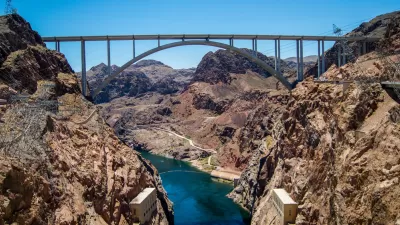I recently read an article containing a World War II-era poster: “When You Ride Alone You Ride With Hitler.” The authors of the article asked whether governments could use similar powers of persuasion today to discourage energy consumption and thus address climate change.
I
recently read an article containing a World War II-era poster: "When You Ride
Alone You Ride With Hitler." The authors of the article asked whether governments
could use similar powers of persuasion today to discourage energy consumption
and thus address climate change.
Because
of the significant differences between World War II and climate change, such
persuasion is likely to be less successful than it was during World War II. Today, some Americans deny the very
existence of climate change, others deny that climate change is related to
human conduct, and still others acknowledge the existence of climate change but
question the seriousness of this problem. And because climate change is a
technically complex issue, citizens unpersuaded of the seriousness of man-made
climate change cannot easily be persuaded otherwise. By contrast, American society stood as one against Hitler: there were a social consensus that Hitler was dangerous. As a result, individuals might have been
willing to make individual sacrifices to stop Nazism.
Moreover, the Hitler
poster was backed up by the law: during World War II, gasoline was rationed. Thus, a rational driver would carpool in
order to avoid using up a week's ration in just a day or two. Moreover,
transportation and land use systems supported the Hitler poster. Jobs were more likely to be centered in one
area, a regional downtown, thus making carpooling more practical. And because suburbia was far less extensive
than today, a driver's friends might live nearby, thus making easy pickups
feasible. Indeed, solo driving is so
much part of today's culture that (in my personal experience) environmentalism
focused on individual or local government action seems to have deemphasized the
issue.
By contrast, other
environmental crusades seem to have received more popular support: usually those
related to middle-class concerns about waste and cleanliness. For example, recycling bins are widespread
even in the United
States, and every
few years some consumer product or other is widely vilified as wasteful; today,
plastic bags and bottled water seem to be common targets of disdain.
So perhaps the
poster is somewhat relevant to today: some people can be persuaded to
voluntarily limit consumption in some ways- but only where such activism
already fits comfortably into their lives and worldviews. So for example, any public relations campaign
related to waste is likely to be somewhat successful, because the North
American middle class already detests litter and obvious waste. By contrast, environmentalist attempts to persuade
people to limit consumption widely viewed as integral to suburban middle-class
lifestyles (such as driving) will fail. This is not to say, of course, that public
policy cannot affect travel patterns- but actual changes in public policy (such
as mixed-use zoning and improved public transit) are far more likely to change
travel patterns than will appeals to conscience.

Maui's Vacation Rental Debate Turns Ugly
Verbal attacks, misinformation campaigns and fistfights plague a high-stakes debate to convert thousands of vacation rentals into long-term housing.

Planetizen Federal Action Tracker
A weekly monitor of how Trump’s orders and actions are impacting planners and planning in America.

San Francisco Suspends Traffic Calming Amidst Record Deaths
Citing “a challenging fiscal landscape,” the city will cease the program on the heels of 42 traffic deaths, including 24 pedestrians.

Defunct Pittsburgh Power Plant to Become Residential Tower
A decommissioned steam heat plant will be redeveloped into almost 100 affordable housing units.

Trump Prompts Restructuring of Transportation Research Board in “Unprecedented Overreach”
The TRB has eliminated more than half of its committees including those focused on climate, equity, and cities.

Amtrak Rolls Out New Orleans to Alabama “Mardi Gras” Train
The new service will operate morning and evening departures between Mobile and New Orleans.
Urban Design for Planners 1: Software Tools
This six-course series explores essential urban design concepts using open source software and equips planners with the tools they need to participate fully in the urban design process.
Planning for Universal Design
Learn the tools for implementing Universal Design in planning regulations.
Heyer Gruel & Associates PA
JM Goldson LLC
Custer County Colorado
City of Camden Redevelopment Agency
City of Astoria
Transportation Research & Education Center (TREC) at Portland State University
Jefferson Parish Government
Camden Redevelopment Agency
City of Claremont






























